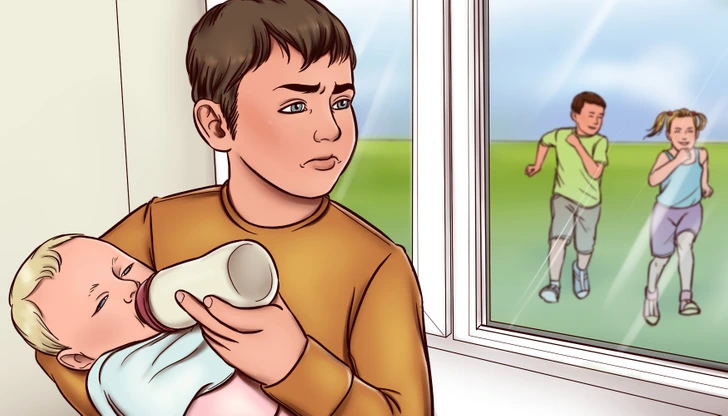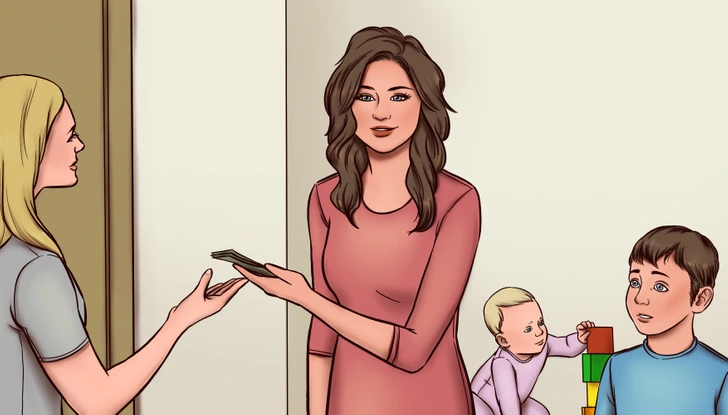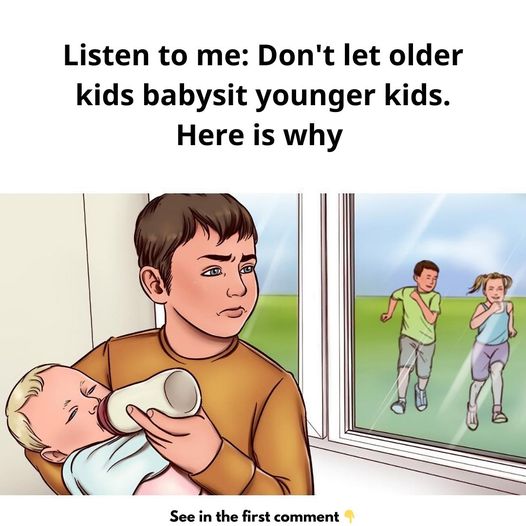As children grow up, parents often see an opportunity for extra help around the house. This can sometimes lead to the expectation that older children will babysit their younger siblings. While the idea may seem practical, it’s not without its challenges. Relying too heavily on older children to care for their siblings can lead to unwanted consequences, affecting their emotional well-being, sibling relationships, and overall development.
You’re Giving Them Too Much Responsibility

It’s natural for parents to want their older children to take on more responsibility as they grow. However, there’s a significant difference between small tasks like watching the baby while dinner is prepared and being left alone to care for younger siblings for extended periods.
When older children are constantly tasked with caring for their siblings, it can quickly feel like an overwhelming burden. They may feel forced into a role they aren’t prepared for, which can cause them to resent their new responsibilities. No matter how mature they may seem, older children are still developing and may struggle to handle emergencies or difficult situations.
Asking too much of them, especially without proper supervision, can set them up for failure. If anything goes wrong, they may feel guilty or be blamed, even though they lacked the knowledge or experience to handle the situation.
They’re Not Professionals
Though older children might be capable of assisting with basic tasks, it’s unfair to expect them to manage the responsibilities of a professional caregiver. Parents who cannot afford babysitters often lean on their older kids, but it’s essential to acknowledge the difference in skill levels.
Older children aren’t trained in child care. They may not know how to handle tantrums effectively, feed a baby correctly, or react to a medical emergency. While they can certainly help with small things like reading bedtime stories or keeping an eye on younger siblings while a parent is nearby, relying on them for full-time child care can be unrealistic and potentially dangerous.
They Sacrifice Their Childhood
When older children are frequently required to babysit, they often miss out on the freedom that other children enjoy. While their peers may be spending time with friends, playing outside, or pursuing hobbies, older siblings often have to stay home and take care of the younger ones.
This sacrifice can deprive them of the time they need to be kids themselves. Childhood is a fleeting phase, and it’s crucial for older children to have time to play, socialize, and relax. When they are continuously asked to babysit, it cuts into this valuable time, leaving them feeling like they’re growing up too fast.

It Can Harm Their Sibling Relationships
Constantly asking older children to care for their younger siblings can strain their relationship. Over time, the older sibling may develop feelings of resentment, viewing their sibling as a burden rather than a loved family member. This tension can lead to friction, arguments, and even long-term rifts between siblings.
Additionally, younger siblings may not always respect the authority of their older brother or sister. They may view their sibling as a peer rather than a caretaker, leading to arguments and power struggles. As a result, the sibling bond can suffer, turning what should be a close relationship into one filled with tension and resentment.
It’s Not Their Job
Expecting older children to babysit for free as part of their household duties can be unfair. In many cases, teens and preteens recognize that babysitting is a paid job for others and may feel slighted if they’re not compensated for the same work. While household chores are a reasonable expectation, regular babysitting is an additional responsibility that many children may not feel comfortable taking on without some form of reward.
If babysitting becomes a frequent or long-term duty, offering compensation can help older children feel appreciated for their efforts. Compensation doesn’t necessarily have to be monetary—allowing them access to privileges, such as using the family car or earning extra screen time, can go a long way in acknowledging their contribution.

A Lack of Fairness in Expectations
One of the most significant issues with having older children babysit younger siblings is the potential lack of fairness. In families with multiple children, it can be easy to place too much responsibility on the oldest, simply because they’re “old enough” or “capable.” However, it’s important to remember that they, too, need guidance, attention, and the freedom to enjoy their own lives.
Imposing too much on them can create an imbalance where they feel more like a second parent than a sibling, and that can have lasting emotional effects. It’s crucial for parents to recognize the limits of what’s appropriate for their older children to handle and ensure that the responsibilities given to them are balanced and fair.
Conclusion: Let Children Be Children
While it may be tempting to rely on older children for help, especially in large families, it’s important to consider the potential consequences. By placing too much responsibility on them, you risk causing resentment, sacrificing their childhood, and potentially damaging their relationship with their siblings. Instead, aim for balance—allow older children to help out in small ways without making them feel like a stand-in parent.
Maintaining fairness and ensuring your older children still have time for their own interests and development is essential. At the end of the day, they should have the chance to enjoy their childhood, just like everyone else.
